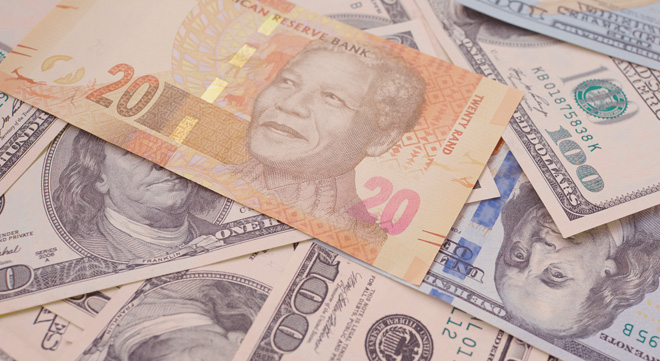A federal jury in New York last week found South African-born former hedge fund executive Neil Phillips guilty of commodities fraud.
Prosecutors accused Phillips, who was the chief investment officer of London-based Glen Point Capital, of manipulating the US dollar/rand exchange rate to trigger a $20 million payment under two binary option contracts his fund had bought.
Phillips was found not guilty of a related conspiracy charge.
Sentencing is scheduled for 14 March next year, and Phillips faces up to 10 years in prison. But his lawyers have indicated that they will appeal against the verdict.
According to the indictment, in late October 2017, Phillips’s hedge fund purchased a “one touch” digital option for the dollar/rand currency pair that was set to expire on 2 January 2018. The option had a notional value of $20m and a barrier rate of R12.50 to the dollar.
Under the terms of the option, if the dollar/rand exchange rate went below 12.50 at any point before 2 January 2018, the hedge fund would be entitled to a $20m payment.
The fund subsequently allocated a portion of the $20m notional value to a client’s fund, thereby entitling the client to receive $4.34m if the option was triggered.
Between early November and mid-December 2017, the rand traded between about R14.50 and R13.15.
On 18 December 2017, the dollar/rand exchange rate dropped significantly, to as low as R12.52, on the news that Cyril Ramaphosa had been elected to replace Jacob Zuma as leader of the ANC and would presumably become the President of South Africa.
The prosecution’s case was that with the option set to expire in a matter of days without having been triggered, Phillips engaged in a scheme to manipulate the rand/dollar rate to drive it below 12.50. To this end, in less than an hour between shortly before midnight (London time) on 25 December and about 12.45am (London time) on 26 December, Phillips directed a Singapore-based trader at Nomura Holdings to sell on behalf of the hedge fund, about $725m in exchange for more than R9 billion.
The jury was shown transcripts of Bloomberg chats in which Phillips discussed how “to break 50” with the trader at Nomura. The messages included “my aim is to trade thru 50”, “[n]eed it to trade thru 50. 4990 is fine”, and “[g]et it thru”.
Prosecutors also played an earlier phone conversation in which Phillips told one of his Glen Point traders that he might have “to start f***ing around in dollar/rand tonight”.
Once Phillips was told that the currencies had traded at below 12.50, he immediately instructed the trader to “stop” trading and asked for proof “of the print”.
In the hours following the trades, the dollar/rand rate once again increased and returned to levels above 12.50 and did not go below that rate for the rest of the day.
As a result of triggering the option, the hedge fund received $15.66m and the client’s fund received $4.34m.
‘Long-term, legitimate strategy’
Defence counsel presented evidence that Phillips was pursuing a strategy based on a strong belief that the rand would rise once Ramaphosa emerged as South Africa’s next president. Phillips’s lawyers argued that the trades were motivated by this strategy, not the $20m option.
His lawyers asserted that the trades were legitimate and conducted transparently in the open market. They further argued that the so-called victims were seasoned financial entities, well versed in the intricacies of trading.
The defence also argued that Phillips’s actions were aligned with established industry practices related to barrier trading. It was stated that Morgan Stanley, which had sold the option to Glen Point for about $2m, also executed similar trades to mitigate its own risk stemming from the wager.
Phillips previously managed a $1.4bn global macro hedge fund at BlueBay Asset Management.
He founded Glen Point in 2015 with a former BlueBay colleague and money from investors, including George Soros.
The firm enjoyed a high profile because it was among a small number of hedge funds to raise new money in 2016, when investors were pulling billions from the industry, according to research firm eVestment.
Glen Point closed in 2022.




No doubt that most forex traders would try to manipulate the market to their benefit if they could do so and didn’t think they would get caught. Normally difficult to do so because market volumes are so high. Seems like Phillips got convicted of being clever enough to take advantage of low trading volumes over Christmas to push the Rand up about 4% for a very brief period of time and thus benefit from the option he had bought from Morgan Stanley. Morgan Stanley was reckless and gambling to issue that type of option. Unlike a conventional Put or Call option, it is not the type of option required by importers or exporters to reduce their forex risk, it is a type of option purely for speculators.